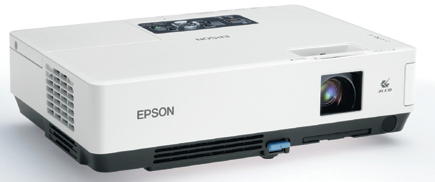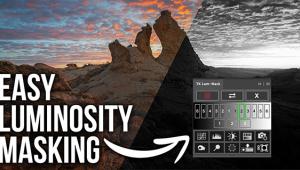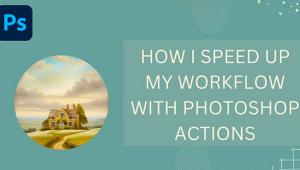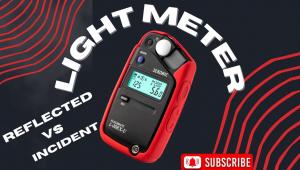Epson’s PowerLite 1715c Projector; A Portable Multimedia Sharing Device
I enjoy it when a new product arrives that holds a surprise right out of the box. The surprise with Epson's new PowerLite 1715c projector is when you first lift it out of its shoulder bag carrying case--it's the lightest projector you will probably have lifted, slide or digital. Weighing in at under 4 lbs (3.7 to be exact) and 3.1x10.7x7.6" in overall size, it's an eminently portable device, one that will free teachers, presenters, lecturers, and even studio photographers visiting a client's home to make a portrait or wedding presentation from ever lugging leaden gear again. The pleasure continues when you plug it in and then attach your image source device--it seems to instinctively understand what you're feeding it and will, for example, set the resolution based on the device without you having to search for or change the monitor settings on the computer. And on top of that it adapts to just about any viewing distance, from about 3 ft (1 meter to be exact) to about 40 ft, just right for most uses and screens. The supplied remote is good from 20 ft plus and seems to work from just about any direction, meaning you don't have to be on top of the projector when you work.
 |
Priced at about $1999, the projector would not be something a casual photographer
might buy, but when you look at some of the larger monitors out there it doesn't
seem that much out of line. In my mind this is more for a club or group or a
photographer who does a good deal of showing of their work--for business
or pleasure. It's for anyone who wants to arrive at whatever venue they're
showing ready to go without fussing with the AV squad or antiquated, out of
balance projectors most of these places seem to have. Indeed, you can set up
the color and contrast just for your material before you go and then work with
the brightness, available in low and high settings, to match the ambient room
light. There's also an auto anti-keystoning setting (+/- 30Þ), great
for adapting to whatever stand you're supplied, within reason, so that
your images don't look like they're climbing stairs on the screen.
Part of the reason for the nice performance, we are told, is Epson's three
LCD technology, which they dub 3LCD. It's great for your standard presentations,
audience slide shows, and even for the display of high-definition television
broadcast signals.
Multi-Tasking Remote
While I usually don't wax rhapsodic about remote controls, this one offers
just about every control, and more, found on the main box. You can switch between
Sources (more on that in a minute) so, for example, if you want to go from stills
to a connected video source you can do so with ease. You can also use it to
stop action (freeze) a video and even zoom into a section of an image if you
like, plus adjust the included Color modes. These include the default Presentation;
Game (for those down hours); Theater (for increased contrast); and the ever-popular
Customized, which you set up yourself. You can even operate the computer via
remote, given that you are connected via a USB cable and have selected Link
21L; this makes slide shows with your actual voice narration easy to do. There's
even a pointer that you can move around the screen included.
Laptop Linkup
Probably the most common linkup with this projector will be via laptop. To do
so you simply patch a standard VGA cable from the computer to the projector;
Mac users will have to use the Mac adapter, usually supplied with the laptop
by Apple. I hooked the projector up with my MacBook Pro and it instantly projected
the screen image onto the viewing screen. There's also a connection with
a stereo mini jack available if you want to play sound through the projector.
And you can also use the remote as a wireless mouse. If you also want to patch
in a video source you can do so with a standard RCA-style video cable, or other
connectors such as S-Video or component video depending on the source. And guess
what--you can also connect your digital camera, Epson P-4000 viewer, or
even the inevitable iPod.
If you like to add music to your presentation you don't have to lug
along an amp and speakers; you can play it through the projector (for those
intimate gatherings) or even through external speakers with a mini stereo jack
and some easy settings. It might not drive a movie auditorium sound setup without
some other amping, but if you have ever used your laptop to play sound and pictures
you can do the same with this projector. You can also present through a wireless
network, but we won't go there; instead let's look closer at how
to create slide shows from your drive folders and project images from a digital
camera.
- Log in or register to post comments

































